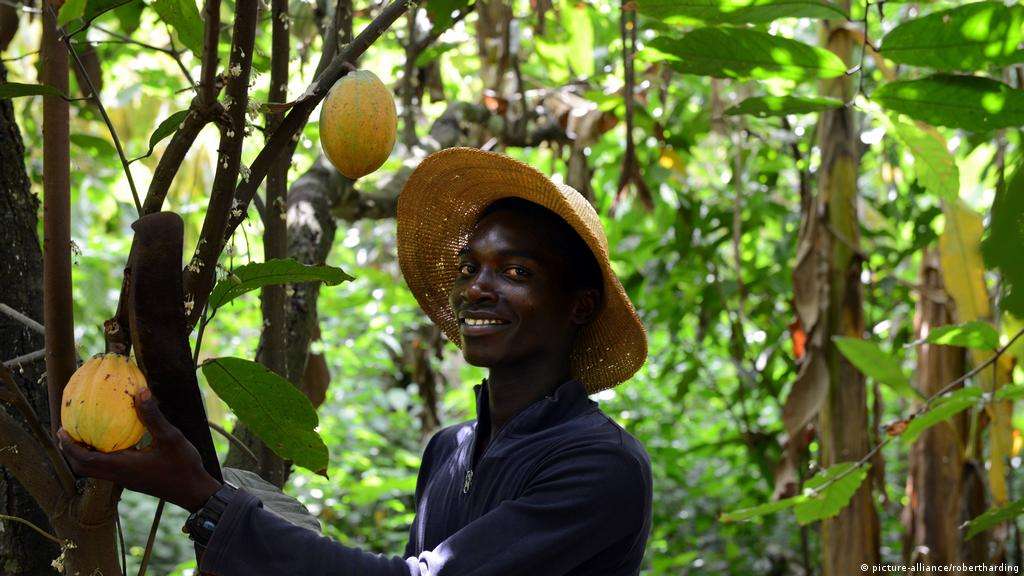A coalition of chocolate companies has proposed an amendment to the EU bill on deforestation to support the inclusion of the requirement for complete geolocation information on the origin of the products covered by the legislation.
The Cocoa Coalition of major confectionery companies, including Mars, Mondelez, Nestlé, Hershey, Ferrero, Tony’s Chocolonely, alongside Fairtrade and Rainforest Alliance, has added support for EU plans for deforestation legislation but calls for it to be further intensified.
“We welcome in particular the application of the due diligence requirements throughout the cocoa and chocolate supply chain within the EU; the potential use of independent means of verification, such as satellite imaging, to underpin the information requirements; the application of the benchmark risk and analysis system within, as well as between, countries; the clear obligations on competent authorities for minimum levels of checks on companies, and minimum levels of penalties; and the inclusion of substantiated concerns provisions for third parties to raise concerns over infringement of the legislation.”
Cocoa Coalition
The coalition specifically welcomed the leveling up of the proposed new legislation. It said it could potentially reinforce producer-country efforts to establish a sustainable cocoa sector for the long term as long as the burdens of compliance are shared relatively throughout the supply chain. According to the coalition, cocoa farmers are not left to bear additional costs without adequate support.

Traceability systems to help address Geolocation information
The coalition further said it also supports the inclusion of the requirement for complete geolocation information on the origin of the products covered by the regulation. The efforts made by companies in the cocoa coalition and the broader cocoa sector have shown how traceability systems, including geolocation information, can be implemented effectively even in complex supply chains featuring a proportion of smallholder farmers. The coalition highlighted several key areas that should be amended, including pinpointing more excellent specific mentions of protecting the existing ecosystem in key supplier nations (including Ghana and Ivory Coast), as well as enabling coherent frameworks of engaging with all stakeholders in the supply chain including smallholder farmers before decisions are made about policies that may impact on them.
“We recognize the critical role of producer-country governments, alongside companies, certification organizations, and others, in rolling our traceability systems to the farm level and the progress led by the government of Cote d’Ivoire and Ghana in setting up natural traceability systems. We also recognize the inherent challenges in expanding these systems to cover the entire supply chain, which comprises millions of smallholder farmers, many of which are currently not part of formal farmer organizations.”
Cocoa Coalition
For this reason, the European Commission must conduct a comprehensive needs assessment of the challenges that smallholder farmers will face in complying with the regulation and the support they will require.
The coalition said, “the assessment should pay particular attention to support for smallholder farmers, including establishing a comprehensive roll-out of traceability systems, which will prove particularly challenging for those smallholders who are currently not part of farmer organizations. It should also be gender-sensitive, considering the different barriers, needs, and capacities of women farmers. This needs assessment will inform the scale and type of support that will need to be mobilized by the EU and its member states and by companies in the sector”.
The EU accounts for as much as 36% of all global imports of crop and livestock products associated with deforestation, according to the World Wide Fund for Nature. Some environmental campaigners said addressing deforestation is not possible without addressing the EU’s demand for the goods which drive it.
Deforestation impacts humans and the environment negatively
Deforestation occurs for several reasons, including farming, with 80% of deforestation resulting from extensive cattle ranching and logging for materials and development. It has been happening for thousands of years, arguably since man began converting from agricultural-based societies and required larger, free tracks of land to accommodate cattle, crops, and housing. It was only after the onset of the modern era that it became an epidemic.
The loss of trees and other vegetation is causing climate change, desertification, soil erosion, fewer crops, flooding, increased greenhouse gases in the atmosphere, and many problems for humanity.
READ ALSO: Asantehene Urges Gov’t to Support the Use of Organic Fertilizer




















